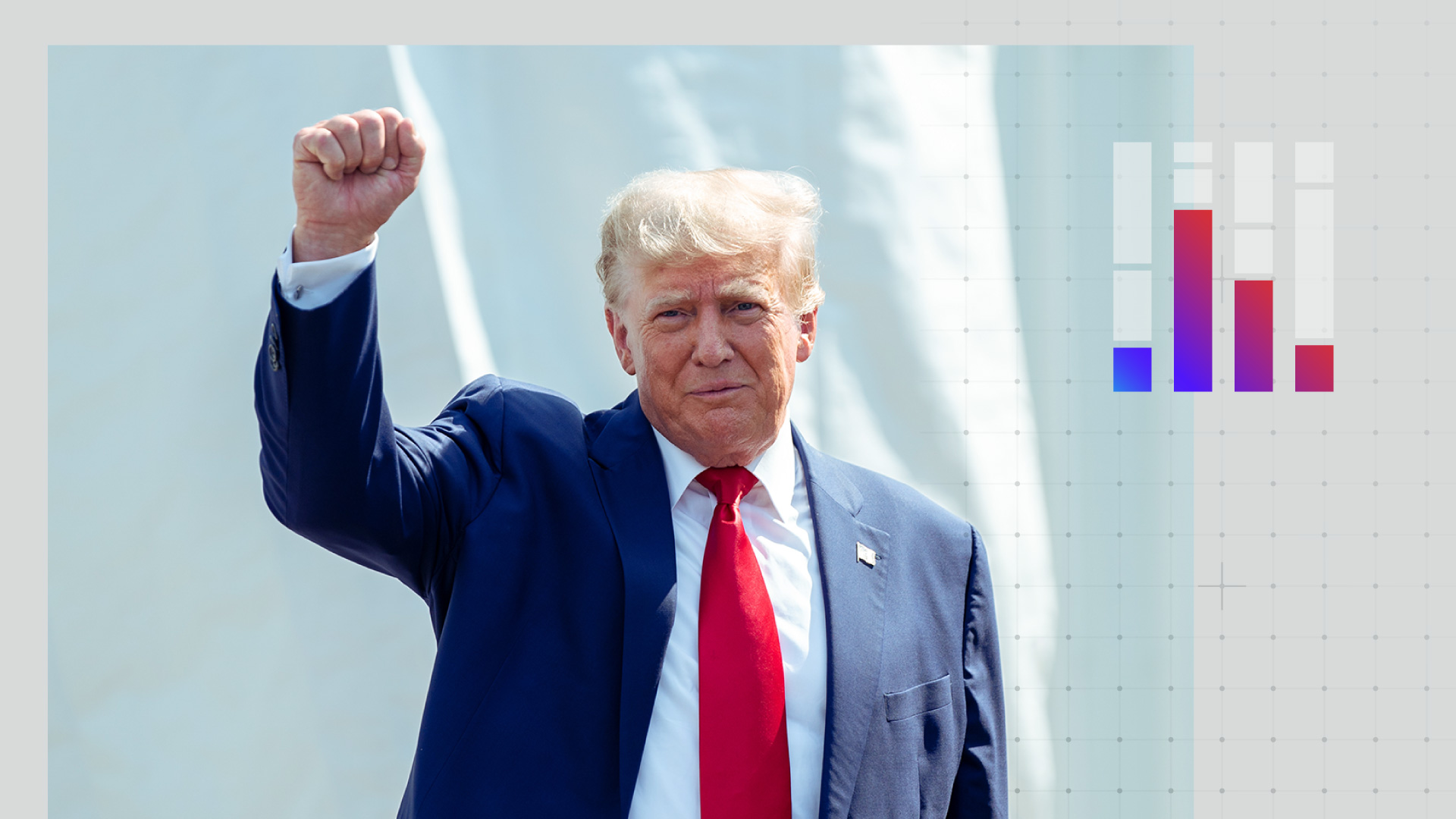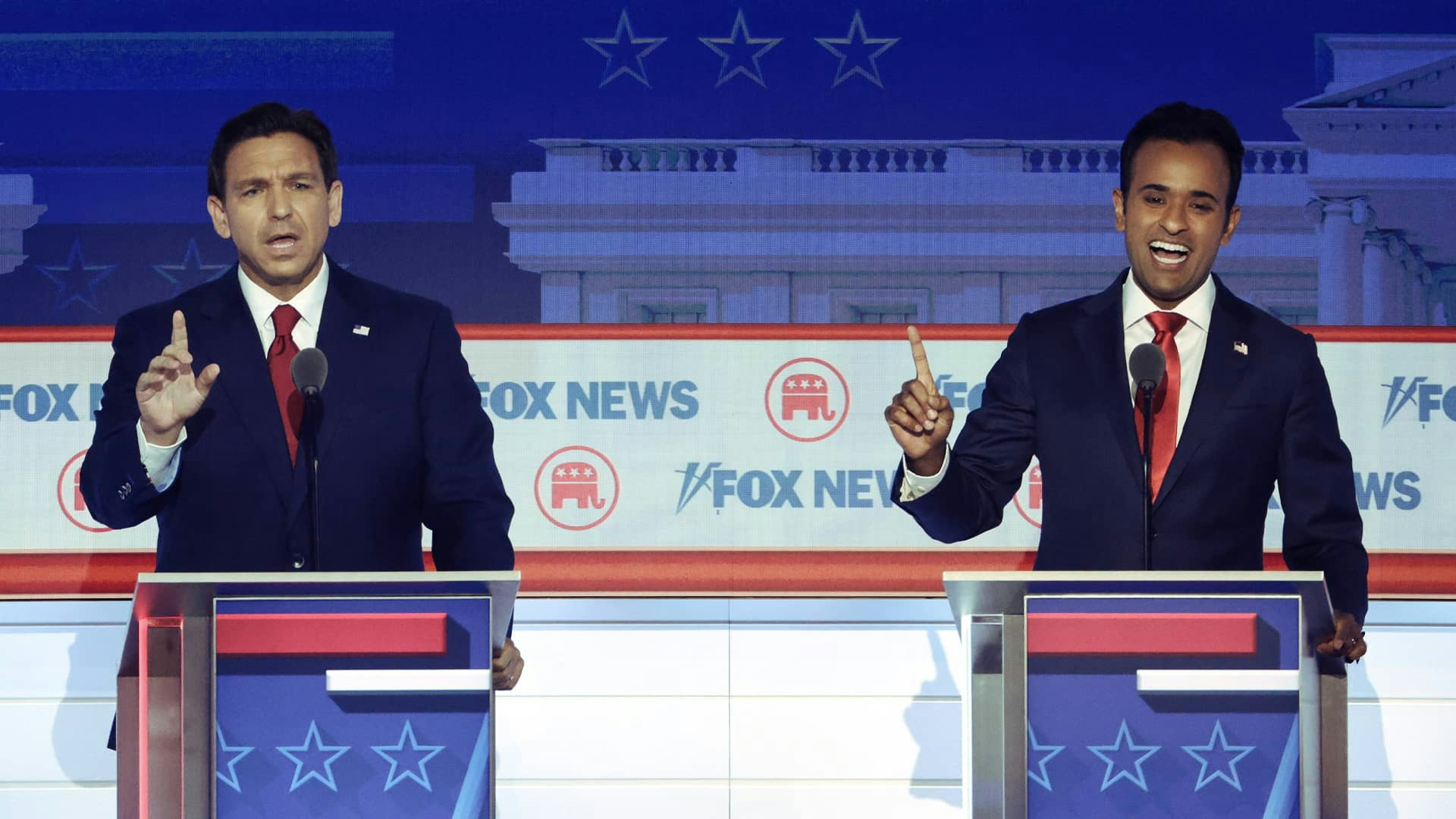After Second GOP Debate, a Biden-Trump Rematch Is Looking More Likely to Voters
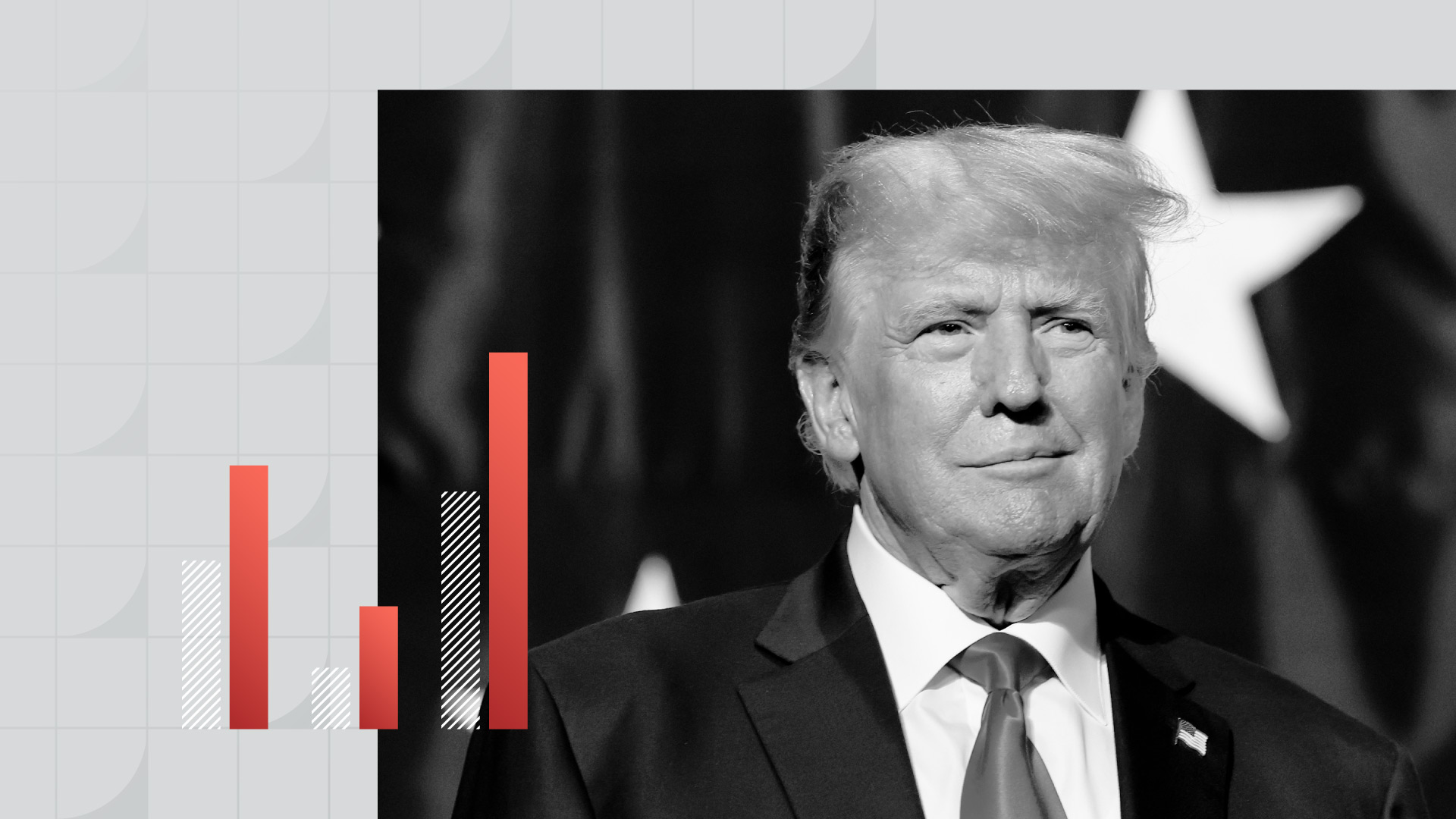
Key Takeaways
53% of Democratic voters and 63% of independents now say it’s likely Donald Trump will win the Republican nomination for president, up a respective 7 and 8 percentage points since the first GOP primary debate.
61% of potential GOP primary voters say Trump has the best chance of beating President Joe Biden next November, matching his share of overall support in the nominating contest.
Nikki Haley and Ron DeSantis earned the best grades from primary voters who watched last week’s debate, but that hasn’t translated to an immediate increase in support.
Sign up to get the latest data and analysis on how business, politics and economics intersect around the world.
Donald Trump recently captured a record-high share of support among potential GOP primary voters as he eschewed the second successive Republican presidential debate, and a new Morning Consult survey suggests the broader electorate is cottoning on to the notion that another general-election bid for the former president is in the offing.
In the latest survey, which was conducted after the party’s second presidential debate at the Ronald Reagan Presidential Library in California, 66% of registered voters said it was “very” or “somewhat” likely that Trump will be the GOP presidential nominee next year, up from 62% who said so in the wake of the party’s first debate in Milwaukee two months ago.
What’s especially notable about this upward trend is which voters are responsible for the movement.
A Growing Number of Democrats and Independents Believe Trump Will Be the GOP Nominee
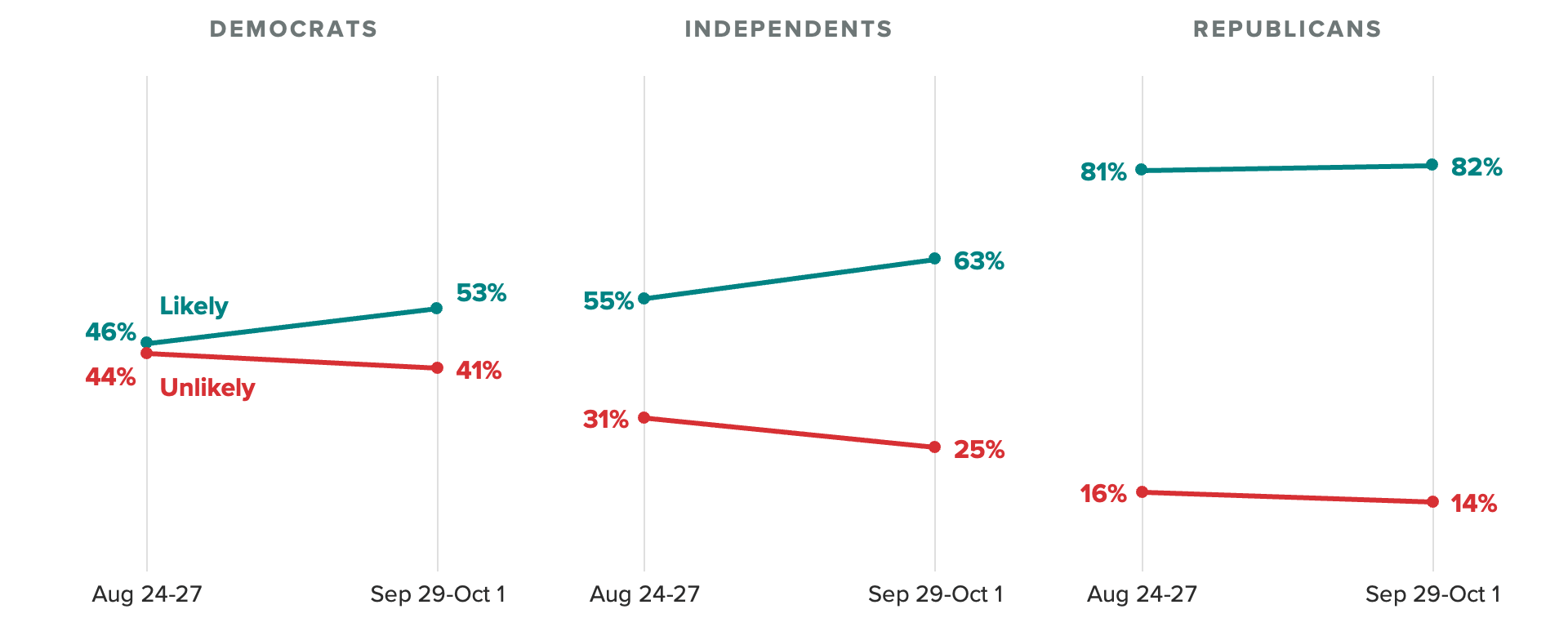
While the share of Republicans who view Trump as likely to win the nomination is essentially unchanged since late August, the share of Democrats and independents who say so has increased by 7 and 8 percentage points, respectively.
Specific demographics at scale: Surveying thousands of consumers around the world every day powers our ability to examine and analyze perceptions and habits of more specific demographics at scale, like those featured here.
Why it matters: Leaders need a better understanding of their audiences when making key decisions. Our comprehensive approach to understanding audience profiles complements the “who” of demographics and the “what” of behavioral data with critical insights and analysis on the “why.”
Given how poorly President Joe Biden and the Democratic Party have been polling in 2023 — and Democratic operatives’ insistence that running hard against Trump will get them over the line in 2024 — an increasing sense of inevitability about another Trump nomination may well be key to improving those numbers.
Meanwhile, Trump continues to cruise toward a rematch with Biden next year, backed by a base of voters who far and away see him as their best bet for retaking the White House.
Trump Maintains His Electability Edge Over the GOP Presidential Field
Among potential Republican primary voters, 61% say Trump has the best chance of defeating Biden in the presidential election, which is the same as his overall share of support in the nomination race, according to our latest tracking of the race. Florida Gov. Ron DeSantis, meanwhile, who is in a distant second place in our tracking, posted a 12% on the electability question following the debate last week — his lowest on record.
What these figures make clear is that Trump’s stranglehold on the nomination race, which has been tight throughout 2023, is only growing tighter, raising questions about how much juice the rest of these candidates can squeeze out of these debates. That’s especially true when he’s not on the debate stage, a decision that Morning Consult data suggests is actually causing base voters to de-emphasize the rhetorical showdowns.
That may help explain why the other candidates are struggling to make waves even if GOP primary voters are expressing approval of their performances on the stage.
Most Candidates Who Made the Second GOP Debate Stage Have Seen Marginal Upticks in Popularity
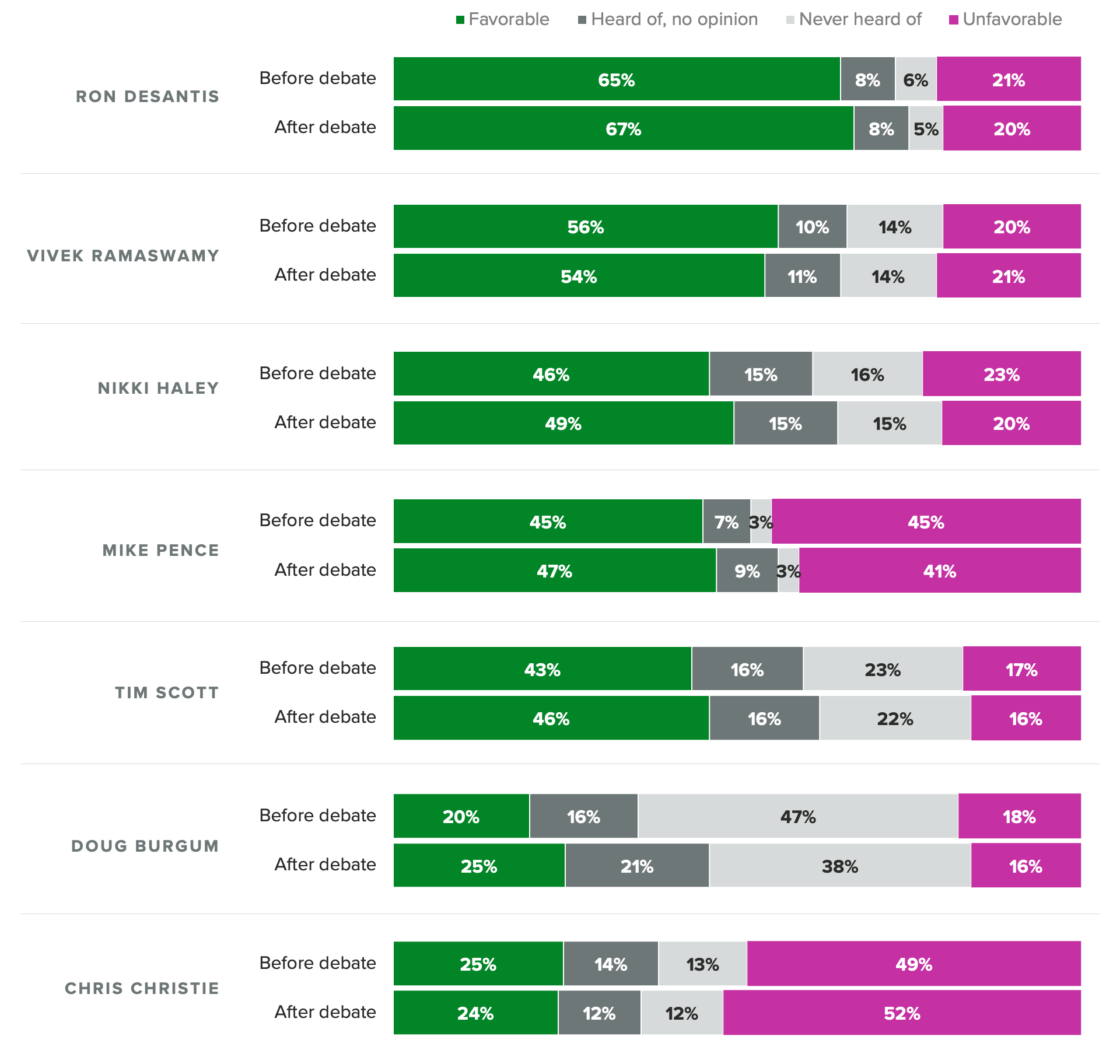
Most candidates who were on the stage last week saw their popularity among potential GOP primary voters increase, especially former South Carolina Gov. Nikki Haley and DeSantis, who were graded best by primary voters who watched the debate. (While 56% said Haley performed well, 54% said the same of DeSantis.)
However, these showings are doing little to materially impact their support from voters, with those candidates’ standing remaining more or less unchanged.
The bottom line
Last week’s debate was viewed as one of the last big chances for candidates other than Trump to change the state of the race. According to our data, they failed — and voters are increasingly coming around to that fact.
Cameron Easley is Morning Consult’s head of political and economic analysis. He has led Morning Consult's coverage of politics and elections since 2016, and his work has appeared in The New York Times, The Wall Street Journal, The Washington Post, Politico, Axios, FiveThirtyEight and on Fox News, CNN and MSNBC. Cameron joined Morning Consult from Roll Call, where he was managing editor. He graduated from the University of North Carolina at Chapel Hill. Follow him on Twitter @cameron_easley. Interested in connecting with Cameron to discuss his analysis or for a media engagement or speaking opportunity? Email [email protected].
